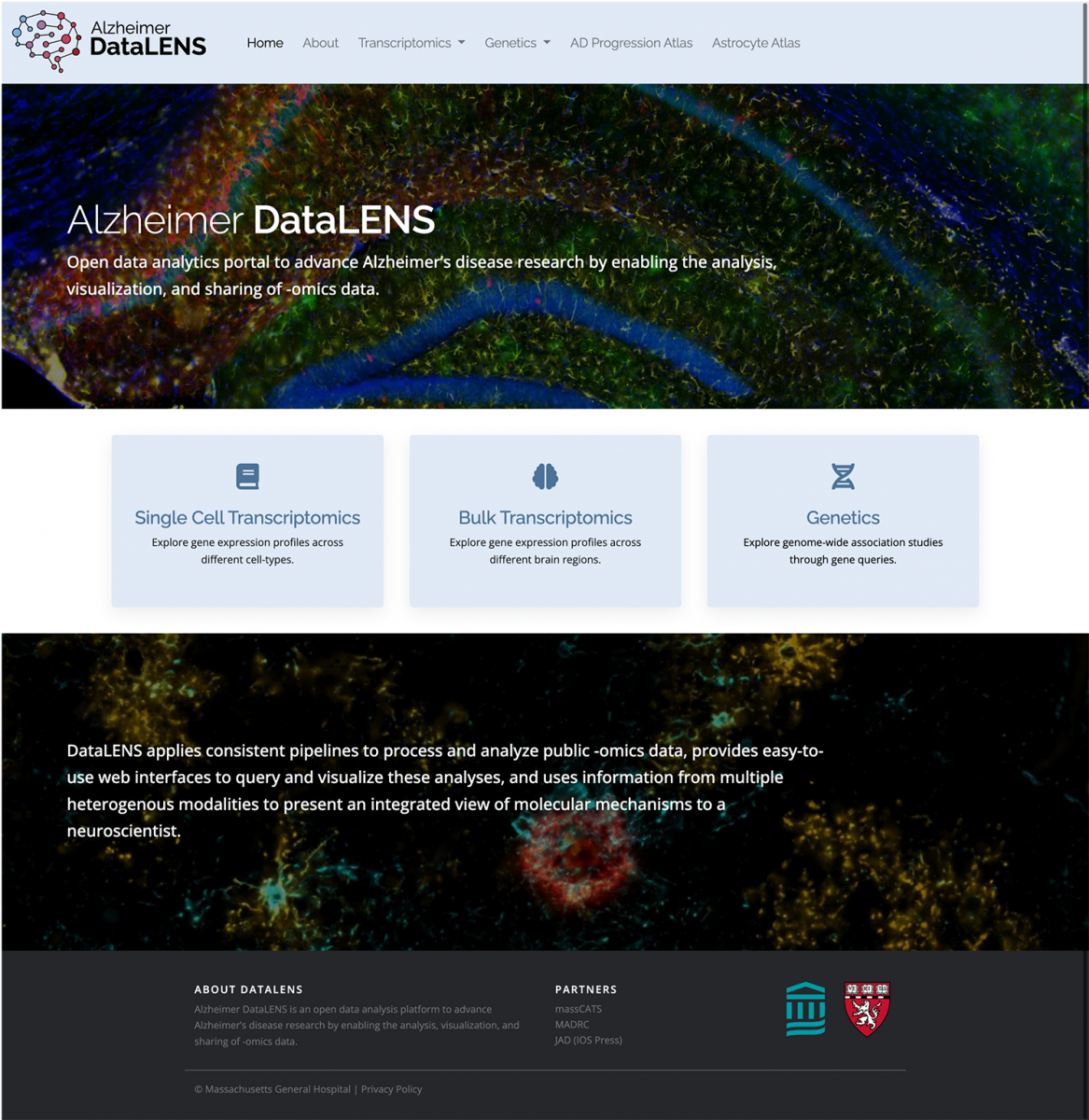12 June 2024

A topical collection of articles in the Journal of Alzheimer’s Disease by noted neurodegenerative diseases experts details emerging omics technologies and machine learning models that are disentangling the molecular drivers of Alzheimer’s disease, providing insights into disease progression, diagnosis, and treatment
Amsterdam – With the advent of new omics technologies in recent years, there has been a deluge of complex, high-dimensional data on Alzheimer’s disease (AD). A topical collection of articles on omics approaches in AD research in a supplement to the Journal of Alzheimer’s Disease (JAD), published by IOS Press, provides new insights into altered pathways and disease-related processes, increasing our understanding of AD pathogenesis to identify specific biomarkers of disease status, progression, and therapeutic response.
AD is a complex multifactorial disease that makes it challenging to develop good models and therapies. Leveraging omics research (genomics, epigenomics, transcriptomics, proteomics, and metabolomics) and technologies and emerging AI methods show promise to disentangle the molecular drivers of AD.
"Emerging omics technologies are enhancing our understanding and tackling the complexities of AD. They are unveiling intricate molecular interactions and identifying new biomarkers that pave the way for breakthroughs in early detection and targeted therapies," Guest Editor Sudeshna Das, PhD, Department of Neurology, Massachusetts General Hospital, and Harvard Medical School, says. "The studies featured in this issue underscore the importance of integrating various omics approaches to fully understand AD’s pathogenesis. This multidisciplinary approach combines omics, bioinformatics, molecular biology, and clinical research."
The major themes across the papers in the supplement on omics in AD focus on the integration of various omics approaches to understand the molecular basis of the disease, identification of novel biomarkers for early detection and therapeutic targets, exploration of the genetic factors contributing to AD risk and progression, and examination of the role of metabolic alterations in the disease’s development.
Papers highlight the following topics:
- Cellular mechanisms and molecular pathways: Omics studies uncovered novel genes and pathways in AD (e.g., altered gene expression related to angiogenesis in cerebrovascular cells), enhancing understanding of the molecular landscape.
- Novel biomarkers: New potential biomarkers were identified for early diagnosis and monitoring AD progression. Studies using machine learning discovered mitochondria-related genes as diagnostic markers, while metabolomics research identified specific compounds that correlate with cognitive decline.
- Therapeutic targets and drug action: Studies provided insights into drug effects, suggesting pathways for targeted therapies and drug repurposing. The exploration of metformin's influence on plasma and proteins in cerebrospinal fluid offers promising directions for repurposing existing drugs and discovering new therapeutic interventions.
- Advancements in tools: Innovation in tools and methods, such as the use of zebrafish models for studying gene expression and the development of online portals for omics data, enhance the ability to perform comprehensive and integrated studies.
 Caption: Alzheimer DataLENS, an open data analytics portal that aims to advance AD research by making omics data easily accessible to neuroscientists. The portal contains several single-nucleus RNA sequencing datasets, over 30 bulk RNA sequencing datasets from 19 brain regions, and genome-wide association studies (GWAS). Credit: Massachusetts General Hospital.
Caption: Alzheimer DataLENS, an open data analytics portal that aims to advance AD research by making omics data easily accessible to neuroscientists. The portal contains several single-nucleus RNA sequencing datasets, over 30 bulk RNA sequencing datasets from 19 brain regions, and genome-wide association studies (GWAS). Credit: Massachusetts General Hospital.
One of the innovations highlighted in a contribution by Noori et al. is Alzheimer DataLENS, an open data analytics portal that aims to advance AD research by making omics data easily accessible to neuroscientists. The portal contains several single-nucleus RNA sequencing datasets, over 30 bulk RNA sequencing datasets from 19 brain regions, and genome-wide association studies (GWAS).
Dr. Das adds, "Omics research and tools such as Alzheimer DataLENS are essential to enhance our understanding of the underlying causes of AD and to develop effective, targeted therapies. Early diagnosis and intervention are crucial to mitigate the effects of AD on patients, their families and caregivers. This supplemental issue to the Journal of Alzheimer's Disease paves the way towards improved outcomes for those affected by AD."
“The complexity of AD has evaded an effective therapeutic or even a firm understanding of the disease after decades of focused research by humans. Omics and related technology have the potential to offer the ‘brain power’ of AI to reveal what traditional approaches have missed,” concludes George Perry, PhD, Semmes Foundation Distinguished University Chair in Neurobiology, The University of Texas at San Antonio, and Editor-in-Chief of JAD.
# # #
Contacts:
George Perry, PhD
Editor-in-Chief, Journal of Alzheimer's Disease
The University of Texas at San Antonio
+1 210-458-8660
george.perry@utsa.edu
Diana Murray
IOS Press
+1 718-640-5678
d.murray@iospress.com
NOTES FOR EDITORS
Omics Approaches in Alzheimer's Disease Research
Journal of Alzheimer’s Disease, Volume 99, Supplement 2 (May 2024), published by IOS Press
https://content.iospress.com/journals/journal-of-alzheimers-disease/99/s2
GUEST EDITOR
Sudeshna Das, PhD, Department of Neurology, Massachusetts General Hospital, and Harvard Medical School
FEATURED ARTICLE
“Alzheimer DataLENS: An Open Data Analytics Portal for Alzheimer’s Disease Research,” by Ayush Noori, Rojashree Jayakumar, Vaishnavi Moturi, Zhaozhi Li, Rongxin Liu, Alberto Serrano-Pozo, Bradley T. Hyman, and Sudeshna Das (https://doi.org/10.3233/JAD-230884). The article is openly available at https://content.iospress.com/articles/journal-of-alzheimers-disease/jad2....
For full text of specific articles and additional information contact Diana Murray, IOS Press, at +1 718-640-5678 or d.murray@iospress.com. Journalists wishing to interview the Guest Editor or authors should contact Guest Editor Sudeshna Das, PhD, at SDAS5@mgh.harvard.edu.
ABOUT THE JOURNAL OF ALZHEIMER’S DISEASE (JAD)
The Journal of Alzheimer's Disease (JAD) is an international multidisciplinary journal to facilitate progress in understanding the etiology, pathogenesis, epidemiology, genetics, behavior, treatment, and psychology of Alzheimer's disease. The journal publishes research reports, reviews, short communications, book reviews, and letters-to-the-editor. Groundbreaking research that has appeared in the journal includes novel therapeutic targets, mechanisms of disease, and clinical trial outcomes. JAD has a Journal Impact Factor of 4.0 according to Journal Citation Reports™ (Clarivate, 2023). www.j-alz.com
ABOUT ALZHEIMER DATALENS
Alzheimer DataLENS is a data analytics portal that aims to advance AD research by making omics data easily accessible to neuroscientists. It provides information on hypothesis- and data-driven research, allowing neuroscientists to share, browse and visualize comprehensive results from bioinformatics analysis of public omics datasets, making it a valuable resource for investigators to quickly and systematically explore omics data and analytics.
Alzheimer DataLENS was initiated by the Massachusetts Center for Alzheimer Therapeutics Science (MassCATS), a public-private partnership to discover new treatments for Alzheimer's disease, organized through the Massachusetts Life Sciences Center. It is also supported by IOS Press, publisher of the Journal of Alzheimer’s Disease (JAD). It is freely accessible at https://alzdatalens.partners.org.
ABOUT IOS PRESS
IOS Press, now part of Sage, is an international scientific, technical, medical (STM) publishing house established in 1987 in Amsterdam. We produce around 90 journals and 70 books annually in a broad range of subject categories, primarily specializing in health and life sciences (including neurosciences, medical informatics, cancer research, and rehabilitation) and computer sciences (including artificial intelligence, data science, and semantic web). In addition, we offer specialized services that support scientific advancement. www.iospress.com
ABOUT SAGE Sage is a global academic publisher of books, journals, and library resources with a growing range of technologies to enable discovery, access, and engagement. Believing that research and education are critical in shaping society, 24-year-old Sara Miller McCune founded Sage in 1965. Today, we are controlled by a group of trustees charged with maintaining our independence and mission indefinitely. https://group.sagepub.com







